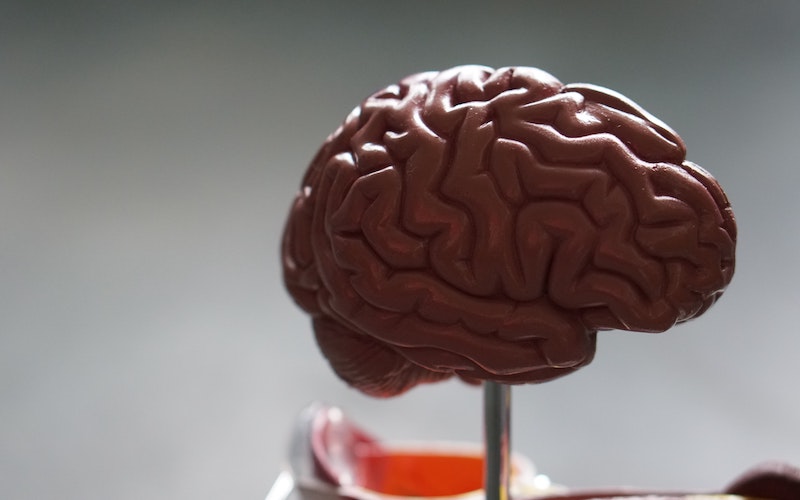
Harnessing the potential of neuroplasticity
Wellness is as much in our minds as in our bodies. In fact, it is through our brains that we perceive unwell symptoms, not the diseased body part. Neuroscience research is affirming that our brain processes aren’t set in concrete and even with increasing age we have the opportunity to develop and grow our brains by forming or remodelling new synaptic connections1. Understanding this allows us to be proactive participants in our health status. Understanding this allows us as practitioners to better guide our patients towards attitudes and practices of wellness. Understanding this gives us some powerful tools in lifestyle medicine to improve health outcomes. Understanding this provides therapeutic treatments for some chronic conditions that previously were considered hopeless.
One such chronic condition is Myalgic Encephalomyelitis/Chronic Fatigue Syndrome. (ME/CFS). ME/CFS is a complex condition thought to arise from overactivation of the immune system often following infectious provocation2. It is characterised by debilitating fatigue, post-exertional malaise, cognitive slowing with evidence of autonomic and neuroendocrine disturbance. There is a strong genetic contribution2. Biological abnormalities include impaired aerobic energy metabolism through mitochondria action2. Since skeletal muscle and brain tissue have the densest concentration of mitochondria, understandably they contribute to most symptoms. While there has been significant advancement in understanding the pathophysiology of ME/CFS, a diagnostic test and specific targeted treatment have yet to be developed3.
Lifestyle Medicine places emphasis on mental and emotional wellbeing, stress and sleep management, and the role of connectedness and positive psychology4. Avoiding risky substances and adequate nutrition and physical activity are also key core competencies5. All of these areas contribute to brain and mind health and our perception of wellness6. All of these areas, according to the science of neuroplasticity, have the potential to rewire our brains for improved health outcomes1.
One year ago, a 20 year old man presented to General Practice for chronic fatigue symptoms as he needed a medical certificate. He was a high achieving school student two years previously when he contracted viral influena. He recovered from acute symptoms after a week but was left with residual muscle fatigue and ‘brain fog’ to the point where he had to quit his studies and was now a welfare beneficiary. Screening for mental health disorders and other biological illness was negative. He fulfilled the Canadian Clinical Case criteria for ME/CFS diagnosis7 and we discussed the role of lifestyle management in treatment.
ME/CFS research demonstrates that symptoms are worsened with stress8. Typically sleep is nonrestorative due to disturbed sleep cycles2. Reducing stressful demands and improving sleep routines is associated with improved functioning and recovery in ME/CFS8. Pacing physical activity is crucial and ME/CFS sufferers learn to manage their daily activities within their perceived energy envelope. Improvement of symptoms with dietary manipulation and intermittent fasting is less clear8.
Over time, the patient above optimised his lifestyle which resulted in modest functional improvement. However, more recently, he underwent structured neuroplasticity training. Neuroplasticity denotes “the brain’s amazing ability to rapidly change just by being used differently. Research has shown that simply by using new ways of thinking, old nerve pathways are switched off and replaced by new, more useful, pathways…to break out of any destructive unconscious patterns that are keeping you stuck, and learn to use new, life and health enhancing ones instead.”9 This is similar to what positive psychology research informs us what constitutes thriving societies, particularly the fostering of positive emotions that can impact on the body’s physiologic processes10. Neuroplasticity training won’t normalise mitochondrial function and energy metabolism but he learnt new ways to bypass the brain’s usual response to fatigue messages and over subsequent weeks was able to participate increasingly in new activities such as hiking and increasing hours in focussed study.
ME/CFS has received new attention in current months with the emergence, during this worldwide COVID-19 pandemic, of a post COVID chronic fatigue state known as “Long COVID Syndrome”11. As well as fatigue, a wide range of symptoms affecting multiple body systems are reported regardless of whether sufferers were hospitalised12. Some symptoms last six months or more in an estimated 10-20% COVID-19 infected individuals12. Clearly, the potential numbers impacted is huge and as the pandemic wanes and citizens are repatriated it is likely that Long COVID will be an issue even in Australasia where COVID-19 rates are lower than overseas. Understanding and applying the principles of neuroplasticity may provide a means for recovery for sufferers.
Advancements in neuroscience research is helping us understand a little more about the amazing capacity for our brain and mind to adapt and rewire to overcome life impacting medical conditions. As survivors of COVID-19 are often left with residual symptoms, neuroplasticity techniques may provide the means for improved recovery as with many other chronic conditions.
- https://positivepsychology.com/neuroplasticity/
- www.iacfsme.org; https://growthzonesitesprod.azureedge.net/wp-content/uploads/sites/1869/2020/10/Primer_Post_2014_conference.pdf
- http://www.drvallings.co.nz/diagnosis.html
- Kelly J., Shull J.; Foundations of Lifestyle Medicine: The Lifestyle Medicine Board Review Manual. Second Edition. Pages 11, 69, 231, 315.
- Lianov, L., Johnson M.: Physician Competencies For Prescribing Lifestyle Medicine. JAMA 2010. 304(2): P 202-3
- https://www.theliftproject.global/
- Carruthers BM, et al. Myalgic Encephalomyelitis/Chronic Fatigue Syndrome: Clinical Working Case Definition, Diagnostic and Treatment Protocols. J CFS 2003; 11(1):7-116.
- http://www.drvallings.co.nz/management.html
- https://lightningprocess.com/how-does-the-lightning-process-work/
- Kelly J., Shull J.; Foundations of Lifestyle Medicine: The Lifestyle Medicine Board Review Manual. Second Edition P 319-320
- https://evidence.nihr.ac.uk/themedreview/living-with-covid19/
- BMJ 2020;371:m3981 http://dx.doi.org/10.1136/bmj.m3981
This article has been written for the Australasian Society of Lifestyle Medicine (ASLM) by the documented original author. The views and opinions expressed in this article are solely those of the original author and do not necessarily represent the views and opinions of the ASLM or its Board.
